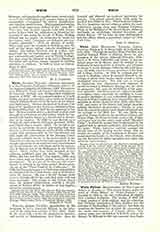

White (alias BLACKLOW, BLACLOE, ALBIUS, ANGLUS), THOMAS, b. in Essex, 1593; d. in London, July 6, 1676. Through his mother, Mary Plowden, who married Richard White of Hutton, Essex, he was grandson of the lawyer, Edmund Plowden. Educated at St. Omer, Valladolid, and Douai, he was ordained priest on March 25, 1617; he studied at the Sorbonne, became bachelor of divinity, and returned to Douai to teach theology, which he did, with intervals, till 1630, when he became president of the English College, Lisbon. In 1633 he resigned and returned to England, where he devoted himself to the writing of about forty works, which caused a bitter theological controversy. Not only was he accused of employing new expressions and manners of speech not usual in Scholastic theology, but his views on purgatory, hell, and the infallibility of the pope, were unsound. Exception was also taken to his politico-religious views, especially his teaching in favor of passive obedience to any established government. Several of White’s opinions were censured by the Inquisition in decrees dated May 14, 1655, and September 7, 1657, and many of his friends and former students publicly disclaimed his principles. Finally! he withdrew the censured opinions and submitted himself and his writings to the Holy See. He was chiefly opposed by George Leyburn, the president of Douai, and Robert Pugh, the latter of whom wrote a life of him, not known now to exist, also a work called “Blacklo’s Cabal”, in which he accuses him of opposition to the regulars and to episcopal authority, and disloyalty to the pope. White, however, counted amongst his friends some of the leading secular clergy, who defended the solidity of his fundamental doctrine and maintained his loyalty to the Church, while disclaiming the doctrines to which exception was taken and which he had retracted.
EDWIN BURTON

